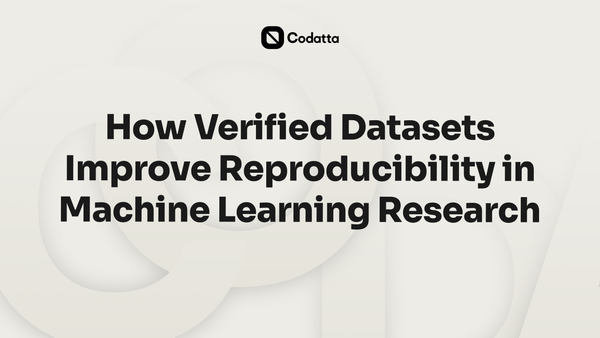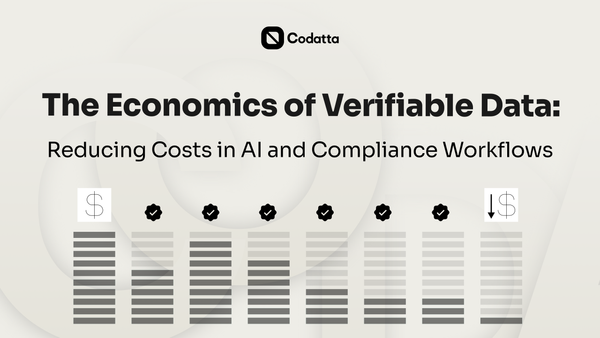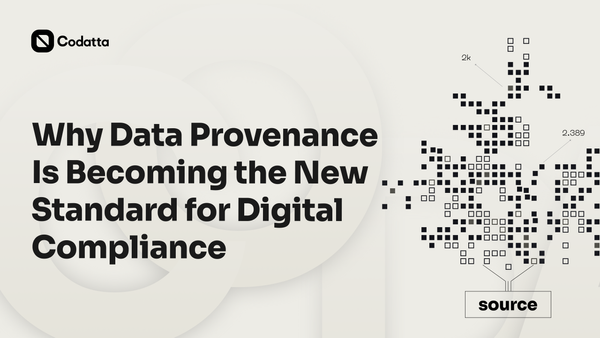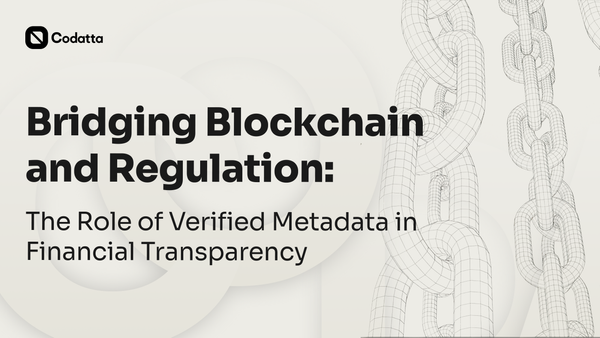Hybrid Validation: Combining Human Expertise and Automated Checks in Metadata Curation
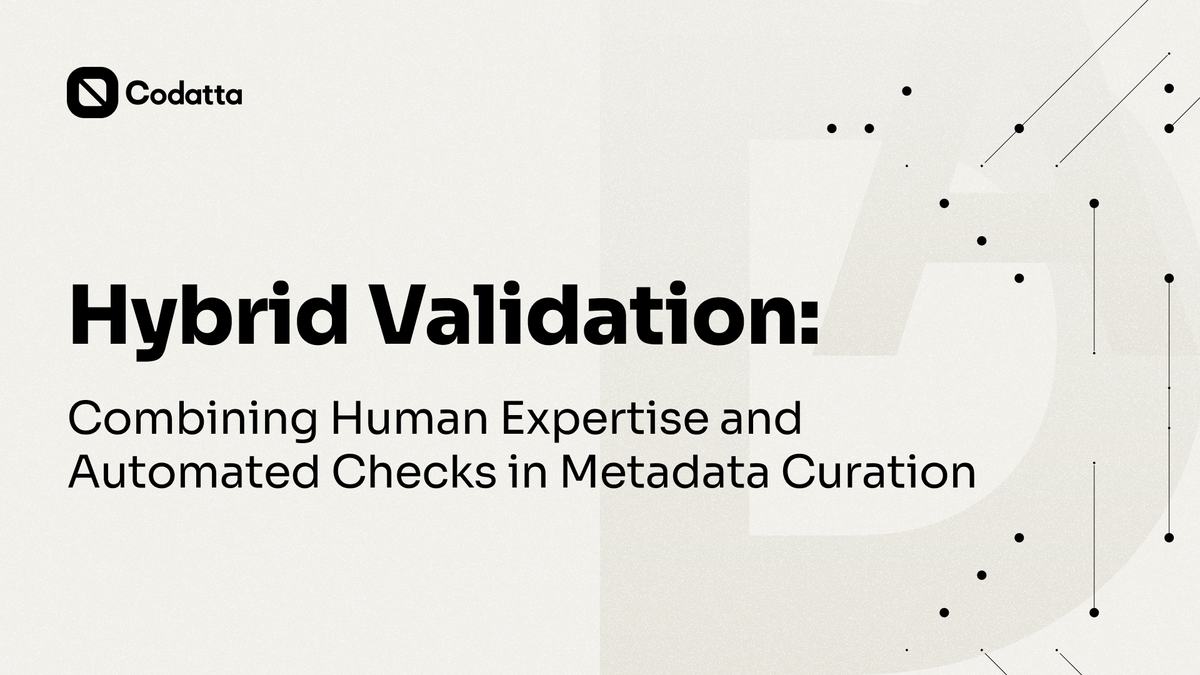
Metadata quality is critical in both AI and blockchain ecosystems. Reliable metadata ensures that datasets can be trusted, shared, and used effectively across applications.
The challenge is clear: fully automated systems bring speed and efficiency but often miss context, while human-only review delivers accuracy but is slow and expensive.
Hybrid validation provides a balance between the two, combining scale with contextual accuracy.
Read on to see how this approach strengthens metadata integrity and makes data more usable in real-world systems.
What Hybrid Validation Means
Hybrid validation is the combination of automated checks with human oversight in the process of metadata curation. It recognizes that machines and human experts excel at different tasks and that the most reliable results come from using both in a hybrid approach.
Automated checks are best for scale. They can quickly validate missing fields, syntax errors, duplicate entries, or inconsistencies across large datasets and databases. This type of workflow helps automate routine quality control, query large data sources, and reduce the time and cost of basic manual curation.
Human expertise adds the nuanced layer that automation cannot. Reviewers can provide context, interpret ambiguous cases, and apply domain-specific insight to curate metadata so that it is meaningful and accurate. In research data management, for example, human experts are essential for assigning correct subject terms, interpreting metadata linked to experimental conditions, or ensuring extraction and standardization in sensitive repositories such as clinical trial and oncology datasets.
Studies on data quality management (Wang & Strong, 1996; Batini & Scannapieco, 2016) show that accuracy, robustness, and usability improve when automated validation is paired with expert review. The same hybrid approach is employed in open data repositories and by the Research Data Alliance, where iterative models are recommended to improve metadata stewardship, enhance access, and support the reuse of high-quality curated datasets.
Why It Matters for Metadata Curation
Hybrid curation combines the scalability of automated tools with the contextual accuracy of human expertise. Automated systems can run quality control checks across large datasets, detect schema or identifier errors, and validate JSON or XML formatting. Automated extraction by machine learning models helps process structured and unstructured data, identify missing fields, and improve data availability for integration, data sharing, and downstream data analysis. These automated steps increase efficiency and reduce the cost of routine curation tasks.
Human expertise ensures that metadata retains meaning and trust. Reviewers provide semantic accuracy, check provenance, and add contextual information that automation cannot capture. In research data management, human input is essential for interpreting edge cases, evaluating supplementary materials, and ensuring consistent classification.
Clinical experts, for example, remain critical in health economics and outcomes research, where data curated from electronic health records (EHR data) must be highly accurate for use in studies of patient treatment and outcomes. Guidance from the U.S. Food and Drug Administration (2018) and the European Medicines Agency (2019) both emphasize that real-world data requires rigorous validation, combining automated checks with manual abstraction.
Together, this hybrid curation model produces accurate and scalable metadata. Automated extraction handles volume, while human abstraction secures reliability and nuance.
The Research Data Alliance (2020) highlights that combining automated validation with expert review is one of the most effective ways to increase the reuse of data without compromising integrity. This approach improves user experience, supports data integration from external sources, and ensures curated metadata is robust enough for research and policy applications.
How Codatta Applies Hybrid Validation
Codatta’s architecture includes a dual-layer process designed to make metadata curation more reliable and usable across domains.
- Automated layer
Automated extraction handles data at scale, parsing, encoding, and validating the metadata structure. This layer applies quality control checks that detect missing data fields, inconsistencies, and formatting errors in data files. It enables accurate and scalable workflows for data extraction, reducing costs while improving standardization. These automated processes are used to curate both structured data and unstructured data, creating a reliable foundation for further data analysis and real-world use cases. - Human layer
Manual curation and human experts add context, interpret edge cases, and validate meaning and relevance. Contributors verify metadata against associated data, ensuring that contextual information is preserved and that extraction aligns with the intended data use case. Their review adds value that machine learning or large language model systems cannot provide on their own, particularly in complex domains where real-world data and supplementary materials must be interpreted carefully.
Together, this hybrid approach allows Codatta to leverage automation and human input to ensure datasets are traceable, reusable, and reliable. Contributors are rewarded with royalties for their high-quality validation work, which strengthens the overall robustness of the system and supports developers, researchers, and applications that depend on trustworthy metadata.
Benefits for the Ecosystem
Scalability
Automated extraction makes it possible to handle large data sets efficiently while maintaining high reliability. This ensures that metadata curation can expand without losing consistency or standardization.
Accuracy
Human oversight from contributors, similar to how clinical experts and automated extraction are combined in medical data curation, helps catch edge cases that algorithms alone may miss.
Trust
The process is transparent and verifiable, building confidence for artificial intelligence and machine learning pipelines as well as blockchain applications that depend on validated data.
Fair rewards
Contributors who provide expertise in review and validation are recognized and rewarded, ensuring that quality work is valued across the ecosystem.
Final Takeaway
Hybrid validation is not just a technical choice, but the foundation of usable and trusted metadata. It ensures that data points, external data, and personal data are managed responsibly, while data availability statements remain accurate and verifiable.
With hybrid validation, Codatta ensures that the data fueling AI and decentralized applications is both scalable and reliable.

